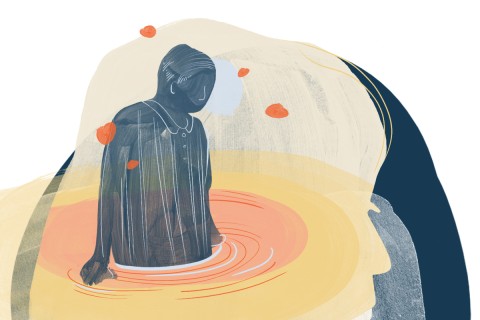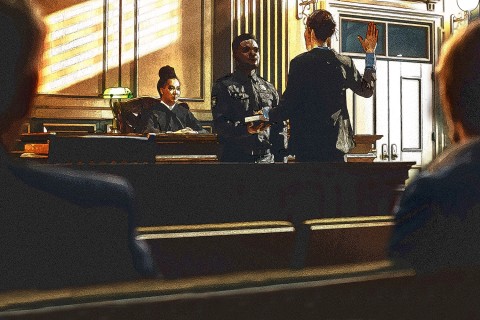Don't worry, rejoice
With the church in Philippi threatened by disunity, Paul exhorts the people to "be of the same mind." He even calls people out by name: Hey, Euodia and Syntyche, I mean you. But Paul also names another threat: worry. We don’t tend to put worry near the top of our list of things that can destroy faithful discipleship in our faith communities, but maybe we should.
People all around us are fretting and worrying: about the economy, their safety, their livelihoods and their futures. Doctors tell us worry is enough to kill us, or at least to raise our blood pressure, give us ulcers and cause severe chest pain. Sociologists suggest anxiety and fear are the raw materials of war. Psychologists describe how worry causes dysfunction in our lives and relationships.
Biblically speaking, worry is a vice and not a virtue: it is the sour fruit of a godless tree rooted in fear rather than faith. But the critical part about Paul’s thoughts on worry is not just his “no” to it but also the interesting twist of what he says “yes” to.
How many people worry less when someone exhorts them to quit worrying? Most respond by worrying about how much they worry. Paul suggests two things to do instead: pray and—strangely—rejoice.
The next time a friend asks what you think about the economy, say you are rejoicing. If people ask how you are responding to increased unemployment, higher gas prices, ongoing threats of terror, struggles in your interpersonal relationships or concerns about your livelihood, tell them you are overcome with joy and hope to share that joy with them. Try that one at the annual Christmas party and see what happens.
Rejoice in the Lord always, and again I say rejoice! Paul isn't putting his head in the sand to avoid harsh realities; he's reminding us to put our heads in the clouds—to have the mind of Christ, count our blessings, give thanks and practice God’s presence in the midst of trials and tribulations. If we do that we may also be able to imitate Paul, not just his obedience but also his testimony of contentment and trust in God.
-------------------
John’s desert sermon reminds us that Jesus came not to be a perpetual infant, memorialized and placed on a mantel, but to be our king and judge, administering a baptism of fire and spirit. John is straightforward, to the point. He shakes us from our nostalgia for the first-century poor family around a manger and reminds us that we need to have a burning in our bones for millions of contemporary poor families that still have no place for their children to sleep safely. Do you have two coats or an extra plate of food? John’s call is unequivocal: we must share with those who have none.
This Advent sermon is political. It speaks to the multitudes in the political arena: to the rich, who have more than they need; to the tax collectors, who often look out for their own interest at the expense of others; to the soldiers, who are often complicit in unjust actions against the poor.
We need this word from the Baptizer today because it cuts to the heart, stripping away all the commercialization and holiday baggage. We can’t just go through the motions of another Christmas. God won't have it. Jesus will not stand for it. Neither should we.




